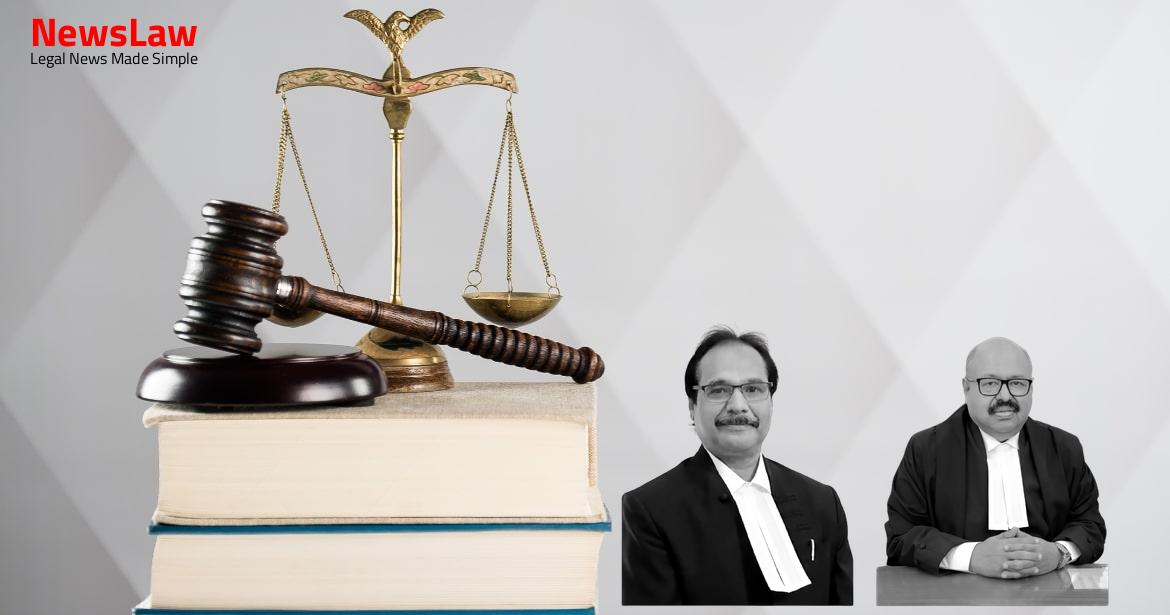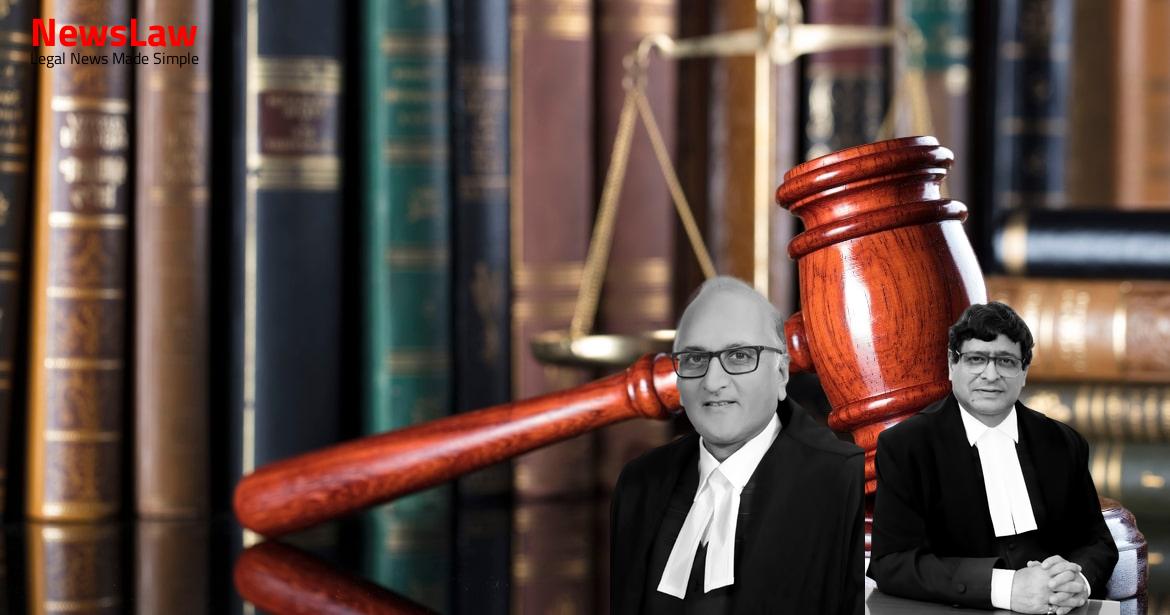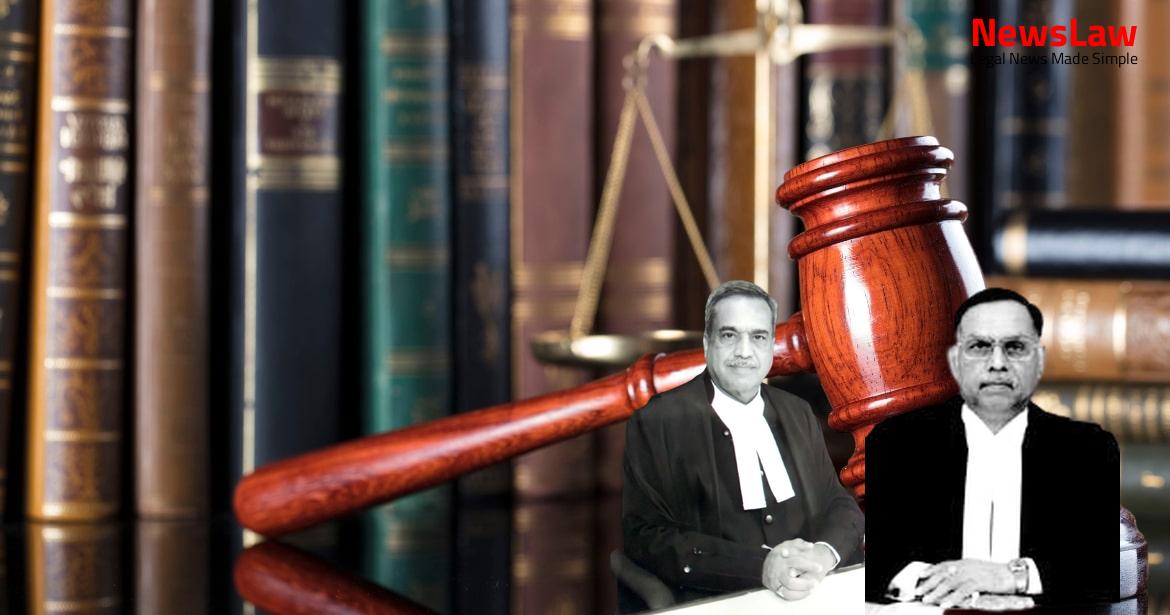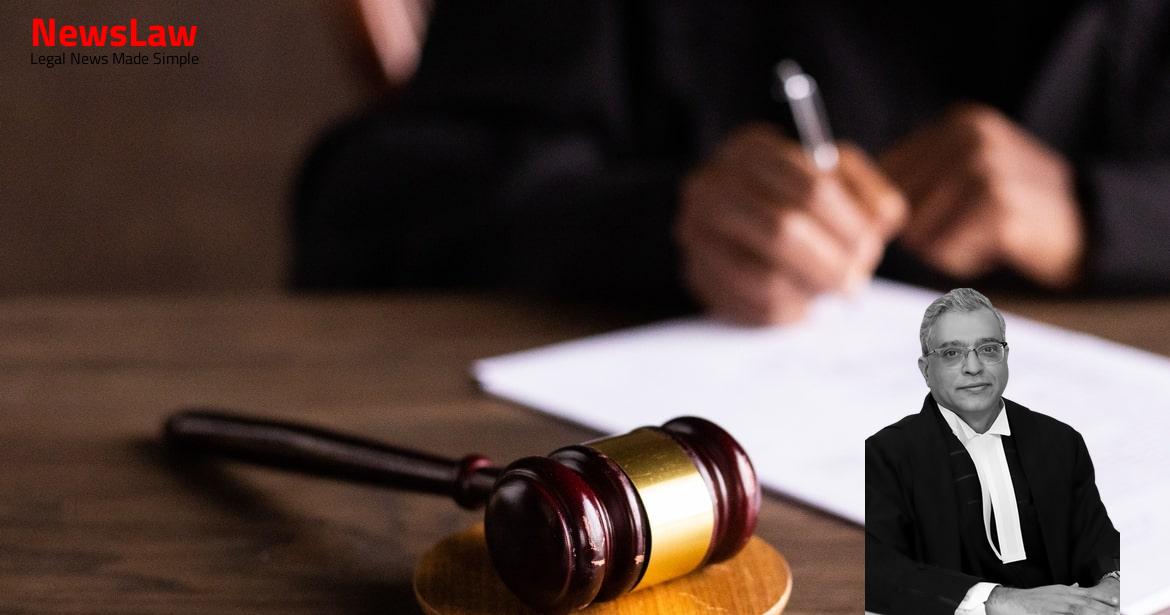In a significant legal battle, the Supreme Court of India delivered a judgment on the petition filed by Har Kaur against the Defendants regarding the authenticity of a Will. The case involved a dispute over land possession and succession rights, with Har Kaur seeking justice against the Defendants. Let’s delve into the details of this landmark decision by the highest court in the country.
Facts
- The defendants did not deny that the plaintiff and Bhagwan Singh were real brothers.
- The plaintiff claimed to be the half-brother of Bhagwan Singh as they were born to the same lady, Mrs. Har Kaur, from her marriages to Sunder Singh and Mehar Singh.
- In the alternative, the defendants pleaded that if plaintiff’s possession over the suit land is proved, the beneficiaries of the Will are entitled to joint possession of half share of the land.
- Bhagwan Singh had executed an unregistered Will on 17.08.1979, and the defendant’s case rested on a Will allegedly executed by Bhagwan Singh on 17.01.1980.
- The defendant admitted that during Bhagwan Singh’s lifetime, the suit land was cultivated jointly by the plaintiff and Bhagwan Singh, and due to the defendant No 1’s attempt to dispossess the plaintiff forcibly, the suit for perpetual injunction was filed.
- Defendants claimed they served deceased Bhagwan Singh out of love and affection, leading to Will in their favor.
- Trial court did not believe defendants’ claim.
- Will relied upon by defendants found surrounded by suspicious circumstances.
- First Appellate Court overturned trial court’s decision on the genuineness of the Will in favor of defendants.
- High Court set aside First Appellate Court’s decision, restoring trial court’s judgment and decree.
- Defendants failed to prove the genuineness of the Will, leading to plaintiff’s entitlement through natural succession.
- Trial court established plaintiff’s possession of the suit land, supported by testimony of one of the defendants’ witnesses.
Also Read: Dhanraj v. Shamabai Dhanraj Gugale: Restitution in Legal Proceedings
Arguments
- The petitioner argues that a finding of fact erroneously recorded by the First Appellate Court can always be interfered by the High Court.
- The scope of interference within the Punjab and Haryana High Court in second appeal is discussed.
- Referring to the case of Pankajakshi (supra), it is argued that the High Court’s finding that the Will relied upon by the respondents was not proved due to suspicious circumstances should not have been interfered by the Supreme Court.
- The review petition was directed to be listed for hearing based on the law laid down in Pankajakshi (supra).
- The petitioner argues that the judgment rendered in Pankajakshi upholds the validity of Section 41 of Punjab Courts Act, 1918, and hence, the High Court decision should not have been interfered with.
- Citing subsequent judgments in Randhir Kaur v. Prithvi Pal Singh & Ors. and Gurbachan Sing (Dead) Through Lrs. v. Gurcharan Singh (Dead) Through Lrs. & Ors., it is maintained that the scope of interference within the jurisdiction of the Punjab and Haryana High Court is the same as under Section 100 of CPC prior to the 1976 amendment.
- The petitioner points out that the High Court erroneously re-appreciated evidence in the case, which was beyond its jurisdiction.
- The argument is made that the High Court erred in approving the Will relied upon by the respondents, as there were no suspicious circumstances surrounding it.
- The review judgment in Civil Appeal No 6567 of 2014 was based on the High Court’s erroneous exercise of power under Section 100 CPC.
- The petitioner further argues that the High Court should not have interfered with the finding of fact recorded by the First Appellate Court, which was based on evidence.
- The petitioner highlights the grounds for review, emphasizing the jurisdiction of the Punjab and Haryana High Court in second appeal under Section 41 of the Punjab Act.
Also Read: Husband’s Potentiality Test Ordered in Divorce Case: Sharda vs Dharmpal
Analysis
- The court of appeal hesitates to reject the finding of a judge regarding specific facts deposed by witnesses, especially when based on witness credibility.
- The court is willing to form an independent opinion on the inference drawn from the facts.
- The High Court’s interference with the findings of fact by the first appellate court in a second appeal is beyond its jurisdiction.
- The High Court must meet the reasoning of the trial court in rejecting a Will when setting aside the trial court’s judgment and decree.
- The presence of suspicious circumstances, such as disinheriting a natural successor without reason and factually incorrect Will covenants, can outweigh mere Will registration and attestation.
- Active participation in the Will by those previously tried for the testator’s murder adds to the suspicious circumstances.
- The care and possession of the deceased by the plaintiff also support the suspicion around the Will’s genuineness.
- The First Appellate Court must provide sufficient reasons if reversing the trial court’s findings based on oral evidence.
- The High Court in a second appeal cannot overturn pure concurrent findings of fact without proper justification.
- The appellate court’s inability to observe witnesses puts them at a disadvantage and should not reverse conclusions based on its own assessments unless the trial court has palpably misused its advantage.
- A Judge’s conclusion based on oral evidence should not be lightly interfered with, especially when credibility is crucial.
- The appellate court should not interfere with the trial judge’s finding on a question of fact unless there are clear discrepancies or a sufficient balance of improbability.
- The High Court did not have jurisdiction to interfere with the concurrent finding of fact given by two lower courts.
- In Haryana, a court in second appeal does not need to formulate a substantial question of law, as Section 41 of the Punjab Courts Act, 1918 applies.
- An error apparent on the face of the record was found, and the judgment in Civil Appeal No 6567 of 2014 was reviewed and recalled for deciding the Civil Appeal on merits.
- The First Appellate Court wrongly set aside the judgment and decree of the trial court without addressing the specific findings of the trial court.
- When an appeal lies on facts, the appellate court can reverse a finding of fact by the trial judge, but must give cogent reasons for doing so.
- The appellate court must be cautious when reevaluating evidence as it did not have the advantage of observing witness demeanor like the trial judge.
- The provisions of Section 41 of the Punjab Act and Section 100 CPC are in pari materia, as clarified by the reference to a High Court in Section 97(1).
- Section 97(1) of the Constitution of India deals with amendments made by State Legislatures in the Code of Civil Procedure.
- The section states that any amendment made by a State Legislature under Schedule VII List III Entry 13 will be repealed if it is inconsistent with the provisions of the principal Act as amended by the Parliamentary enactment in the 1976 Amendment to the Code of Civil Procedure.
- Findings recorded by the trial court were found to be supported by evidence and not perverse or illegal.
- The High Court correctly overturned the judgment of the First Appellate Court to reinstate the trial court’s decision.
Also Read: Reinstatement of a Class-IV Employee: Legal Analysis
Decision
- Review Petition allowed
- No substance found in the appeal
- Appeal dismissed
- Parties to bear their own costs
- Civil Appeal restored to original number
- Taken on board with consent of parties
- Civil Appeal to be decided afresh on merits
Case Title: LEHNA SINGH(D) BY LRS. Vs. GURNAM SINGH (D) BY LRS.. (2024 INSC 429)
Case Number: R.P.(C) No.-001025 – 2019



